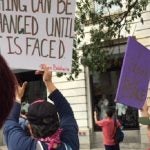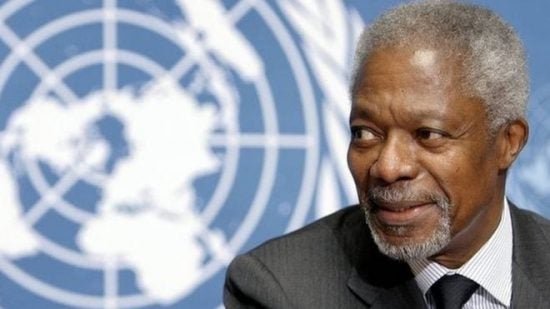The past several weeks have brought reminders of the importance of solidarity with our fellow human beings who face threats to their well-being, whether from the diseases of hate and cruelty or from the equally devastating disease of indifference. We begin in Washington, DC, then move to the global stage.
******
As a resident of Washington, DC, I have the good fortune of living only blocks from the rallies and marches that have proliferated over the past 20 months. Images from one march earlier this month embodied for me why, even when sometimes we know that a march or rally will not lead to policy change today, they can nonetheless have a real and meaningful effect today. The march was from Freedom Plaza to Lafayette Square in front of the White House as part of the Rally Against Hate that organized to stand against the racism, antisemitism, xenophobia, Islamophobia, and other expressions of hate whose perpetrators have felt empowered by the current occupant of the White House.
As thousands marched those few blocks, among those who lined the streets were service workers, doormen and restaurant workers, mostly black and Latino (emblematic of how we as a nation have failed yet to truly address the persistant consequences of racism of the past, with economic systems today reinforcing past wrongs, creating new ones). At one restaurant, it looked as though the entire kitchen staff had stepped outside. At another, several workers at one window were cheering, waving, smiling, as were restaurant workers and patrons pressed up against the restaurant’s next window.
These targets of the hate that the marchers were going to confront – the so-called “unite the right” rally of white supremacists was scheduled to take place at one end of Lafayette Square – got great pleasure in seeing thousands of people who were so clearly with them, standing up, speaking out, chanting and singing for an America that embraces people of all hues and religions, people from all lands, with open arms and with love (“love, not hate, that’s what makes America great” went the chant).
Such visible demonstrations of solidarity may be particularly imperative when it comes to people under threat today not only from avowed white supremacists, but even from the very policies of the United States government – particularly immigrants, and especially those from Latin America, though also people of color and Muslims from other parts of the world. For them, stepped up deportations – part of an anti-immigration political environment that even included family separation turned family-often-non-reunification, and cruel new policies aimed to keep people fleeing domestic abuse and gang violence from receiving asylum – all contribute to trauma and chronic stress that cause significant harm to physical and mental health. Toxic stress in childhood even has lifelong effects. This stress and resulting harm appears to affect all Latinos in the United States, not only ones without proper documentation. Meanwhile, fear also leads immigrants who face the threat of deportation to avoid leaving their homes and opt out of health benefits to which their U.S. citizen children are entitled.
It would be nice to think that with enough outward displays of support from those of us who continue to favor the America of the Statue of Liberty rather than of a wall could replace that endless fear with hope and solace and counter this violence to people’s health. Maybe for some immigrants and other Latinos, at least at the edges, it could; I am not aware of research on the salutary health effects of solidarity. But perhaps the persisting roots of the stress and fear would mean that whatever displays of solidarity, unless the government changes its policies and practices, these health harms will persist unmitigated.
Whatever solidarity’s effects on chronic and toxic stress, though, and whatever the policy impacts or other ramifications over time, in those smiles and that cheering of those in the restaurant windows I witnessed the immediate, and themselves very real, reasons for standing with our neighbors who are being told that they are not welcome in, or are not full members of, the American family.
******
I conclude with an extended quote of Kofi Annan, the former UN Secretary-General who died on Saturday. When accepting the 2001 Nobel Peace Prize, he spoke the basic truth of our common humanity, and what a different, what a better, world ours would be if we simply recognized this and lived it. Always worth bearing in our minds and in our hearts, it has particular resonance now as we near August 25, 2018, the first anniversary of when what New York Times columnist Nicholas Kristof called “a genocide in slow motion” against the Rohingya people of Burma became an all-out genocidal assault. In these times when human rights and societies built on our common humanity are under threat in so many ways in so many parts of the world, Kofi Annan’s tireless insistence on human rights and our common humanity is something we must all echo.

Image from BBC courtesy of AFP.
Here is what he said:
“Today, in Afghanistan, a girl will be born. Her mother will hold her, feed her, and comfort her, and care for her, just as any mother would anywhere else in the world. In those most basic acts of human nature, humanity knows no divisions. But to be born a girl in Afghanistan today is to begin life centuries away from the prosperity that one small part of humanity has achieved. Even though her mother will do all in her power to protect her and sustain her, there is a one in a four risk that this girl will not live to see her fifth birthday. Whether she does is just one of the tests of our common humanity, of our belief in our individual responsibility for our fellow men and women. But it is the only test that matters. Remember this girl, then our larger aims to fight poverty, prevent conflict, or cure disease will not seem distant or impossible. Indeed, those aims will seem very near and very achievable, as they should. Because beneath the surface of states and nations, ideas and language, lies the fate of individual human beings in need.”



